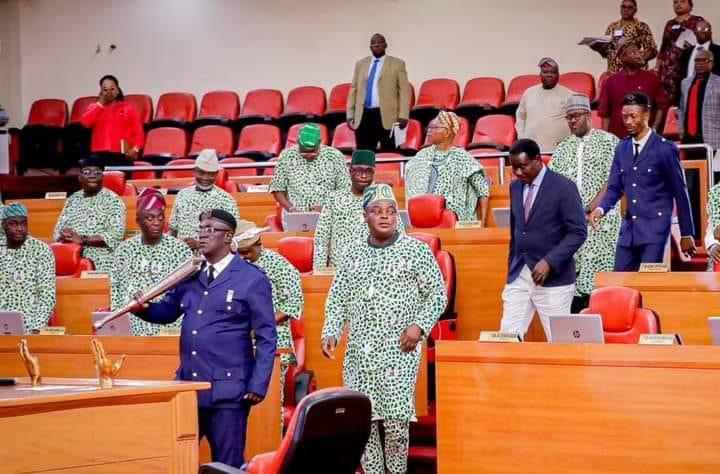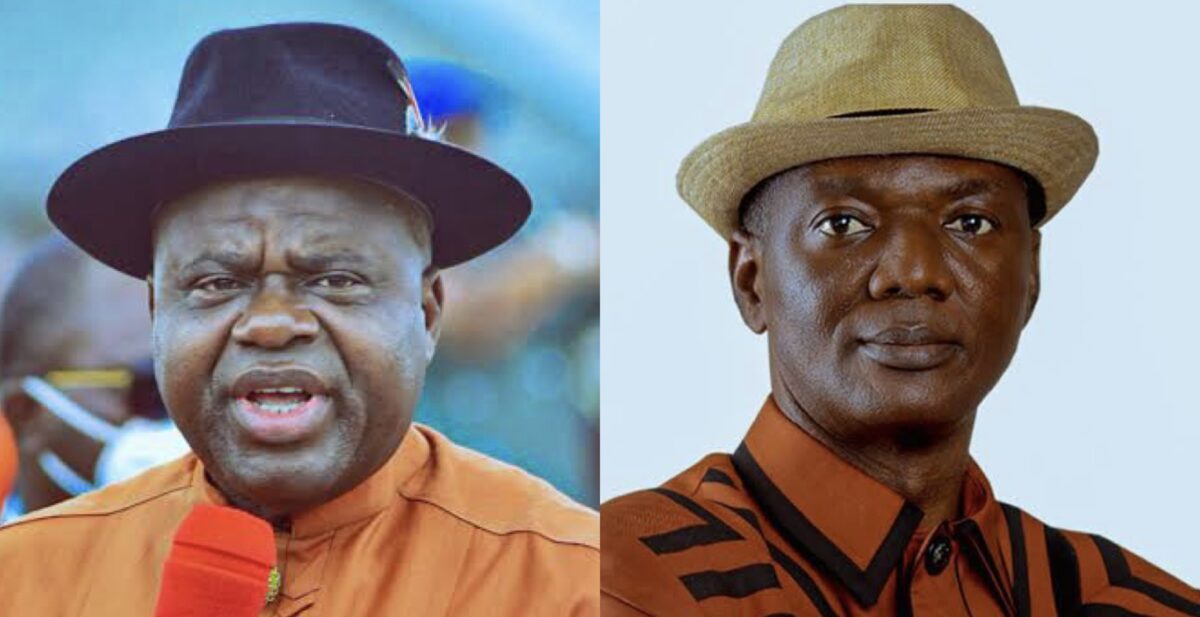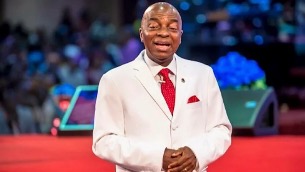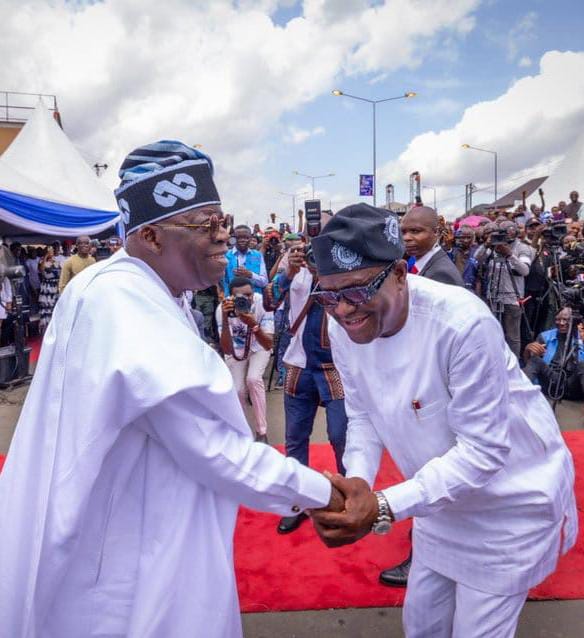Politics
Don’t Be Ignorant Of The Law, Lagos Assembly Hits Back At Suspended Chairman, Lawyer

– says law does not recognise sentiment, emotions
The Lagos State House of Assembly has asked suspended chairman of Alimosho Local Government Area, Jelili Sulaimon, and his lawyer, Dr. Abdul Mahmud, to recognise the place of law rather than sentiments and emotions as guiding principles of legislative practices in Lagos State.
The advice by the Assembly on Tuesday was in response to the purported reaction of the duo to the suspension of the council chairman by the House on Monday at plenary.
The House, in the reaction signed by Hon. Stephen Ogundipe,
chairman, Committee on Information, Strategy and Security, further advised Jelili against ascribing self-made meanings to the laws empowering the lawmakers act where necessary in the interest of the people.
Read the full reaction below:
JELILI SULAIMAN’S SUSPENSION BACKED BY LAW
The attention of the Lagos State House of Assembly has been drawn to a statement supposedly signed by Dr. Abdul Mahmud, counsel to the embattled Alimosho local government chairman, Mr. Jelili Sulaimon, claiming to condemn the unanimous agreement of the Assembly to suspend his client on Monday, October 7, 2024.
Beyond the sensational rhetoric and half-baked details in the statement that is replete with emotions rather than deep-thoughts, it is pertinent to break down the real situation and puncture arguments as to the powers of the House to suspend Mr. Jelili.
In his race to the public to ‘garner’ sentiments, Jelili’s lawyer forgot to remember that there are no local government areas that created themselves. In other words, the creation of a local government follows strict processes of the law and Section 7 of the 1999 Constitution of Nigeria (as amended) creates the path to knowledge about this.
“The system of local government by democratically elected local government councils is under this Constitution guaranteed; and accordingly, the Government of every State shall, subject to Section 8 of this Constitution, ensure their existence under a Law which provides for the establishment, structure, composition, finance and functions of such councils.” Does this answer a question from the arguments of Jelili’s lawyer as to who has the power to create laws that regulate the activities of local government councils and their administration?
For better understanding, that section provides for the existence of: democratically elected system of Local Government to be guaranteed by a law of the State House of Assembly.
The same section provides that the House of Assembly is required to make provisions for statutory allocation of public revenue to Local Government Councils in a State. Section 8(3) highlights the procedure to be undertaken by a State House of Assembly in the creation of a new Local Government Area(s) in a State while Section 8(4) highlights the procedure to be undertaken by a State House of Assembly, through law, in the boundary adjustment of existing Local Government Areas.
Now, Section 162 (8) of the Constitution stipulates that a Law of the State House of Assembly shall provide for the distribution of monies standing to the credit of Local Government councils in a State.
Maybe we should remind him, his client and those travelling with him that Section 128 of the same Constitution further gives clarity to the powers of the House of Assembly.
“Subject to the provisions of this Constitution, a House of Assembly shall have power
by resolution published in its journal or in the
office Gazette of the Government of the State
to direct or cause to be directed an inquiry or
investigation into –
(a) any matter or thing with respect to which it
has power to make laws.
Here and based on the above constitutional provision, we are moved to ask again: who is legally guaranteed to make the law that creates the running of the local government? It is definitely not the National Assembly which is granted the constitutional powers to create states and not local governments.
This brings us to the Lagos State Local Government Administration Law (as amended) upon which the creation, administration and related activities of the local government system of Lagos State are based.
For better public information and effective knowledge, Section 24(a) of the amended law gives powers to the Lagos State House of Assembly to pass a resolution for the removal or suspension of any chairman, vice chairman, or official of any local government area (LGA) or local council development area (LCDA) after conducting an investigation. It states further that all that is needed for this resolution is a simple majority of the Assembly members. This emphasis is further highlighted in Section 5 of the law.
The amendment aims to ensure accountability and maintain order within the local government structure in Lagos State.
With this level of enlightenment as to the position of the laws guiding the administration of local government councils, it is further important to avoid misinformation or misrepresentation of the recent Supreme Court judgement concerning local governments in Nigeria. There is a marked difference between financial autonomy (upon which the lawyer’s argument rests) and administrative powers of the House. The rush to churn out a defence armed, albeit, with inferior understanding of the Supreme Court judgement does not give a sufficient case against the action of the House of Assembly.
The Local Government Administration law from which the council chairman and other elected officials of the local government system derive their powers is a product of the House of Assembly. The office of the Auditor-General for Local Governments that monitors the financial activities of this third tier of government is created by the law made by the Lagos State House of Assembly.
The Local Government Service Commission which handles issues relating to the officials of local governments is a creation of the House of Assembly. The Lagos State Independent Electoral Commission (LASIEC) that conducts elections into elective offices at the local government level is a creation of the House of Assembly. Therefore, jettisoning these facts will amount to a poor knowledge of the legislature. If you say the Lagos State House of Assembly does not have the power over local governments, it means all these laws created by the House should not be in place. If the laws should not be in place, then why would local governments exist?
We learnt that in a bid to protect the chairman, the councillors of the Alimosho Local Government Area hurriedly suspended the Vice Chairman, Akinpelu Johnson. To show how laughable this is, it is good to note that the law guiding them does not have a provision for suspension. The Local Government Administration law gives them the opportunity to remove a chairman or vice chairman but this also comes with a process. Thus, the suspension of Johnson is simply invalid. It is therefore necessary to remind the council leader that he can also be removed in line with the Local Government Administration law of Lagos State. If he does not know this, then, it is a pity.
For the few trying to juxtapose the functions of the National Assembly with those of the House of Assembly in this case, they should take a chill pill and request to be tutored. The National Assembly cannot interfere with the runnings of a State. It is not a part of its duty. On the other hand, the constitution grants the State House of Assembly powers over the local governments.
It is to be noted that this is not the first time the Lagos State House of Assembly would be suspending the same council chairman. In May 2021, he was suspended with two others by the House for their total disregard for the local government guidelines created by the State Legislature.
While we urge against mawkishness, we would also like to task residents of the council and members of the public not to allow themselves be swayed by positions and opinions that are opposite the law in this regard.
Hon. Stephen Ogundipe
Chairman, Committee on Information
Lagos State House of Assembly.
Politics
Breaking: Diri Orders Autopsy on Bayelsa Deputy Governor’s Death, Warns Against Politicisation

Bayelsa State Governor, Senator Douye Diri, has ordered an autopsy to determine the cause of death of the state’s Deputy Governor, Lawrence Ewhrudjakpo.
Governor Diri gave the directive on Saturday while receiving former President Goodluck Jonathan at the Government House in Yenagoa.
Reacting to the incident, the governor condemned what he described as widespread misinformation and speculation on social media, warning against any attempt to politicise the deputy governor’s death.
“I want to make an appeal. I have seen people politicise his death. In Ijaw land, there is no enmity in death. Let nobody politicise the passing of our dearly beloved deputy governor,” Diri said.
“If anyone truly loves him, this is the time to show it. I have directed that an autopsy be carried out to reveal the cause of his death. There is a lot of nonsense going on on social media.”
The governor further urged the public to focus on mourning and honouring the late deputy governor, noting that the state government had declared three working days of mourning in his honour.
“If anyone is issuing statements to eulogise him, let it end there. Let us mourn him because Bayelsa State is in a mourning mood,” he added.
Governor Diri also called for unity and love among the people, reminding them of the inevitability of death.
Speaking during the condolence visit, former President Goodluck Jonathan described the late Ewhrudjakpo as a committed and dedicated individual who played a key role in the activities of his foundation.
“For me, he was someone my foundation and I will never forget. He represented the governor in all our programs,” Jonathan said, adding that Ewhrudjakpo worked tirelessly in that role, even more than when he served as deputy governor.
Politics
N1.4 Trillion not enough to get me into politics – Bishop Oyedepo reveals

The founder of Living Faith Church, Bishop David Oyedepo, has said he will never take part in partisan politics, not for even billions of naira.
He stated that no amount of money, including “$1 billion,” (1.4 Trillion naira) would make him join politics.
Oyedepo made this known during an impartation service at Shiloh 2025 held at the church’s headquarters in Canaanland, Ota, Ogun State.
He explained that partisan politics is not part of his life’s calling and that is why he has chosen to stay away from it.
In his words: “In 2015, I warned the church that trouble was coming. Didn’t trouble come?
“Partisan politics is off my calling. If you give me $1 billion to join politics, I won’t, because it is off my course.”
The bishop also said the world is in urgent need of God’s intervention because of the times we are living in.
According to him, believers are being trained as an end-time army to bring solutions to national and global problems, similar to what biblical figures like Joseph and Daniel did.
EVENTS
Wike at 58: “You’re a Shinning Star in my Cabinet, Tinubu hails Wike.

President Bola Tinubu congratulates Chief Nyesom Wike, Minister of the Federal Capital Territory (FCT), on his birthday, December 13.
President Tinubu celebrates with the Minister and former governor of Rivers State, giving thanks to God Almighty for enriching him with a life defined by purpose, service, and courage.
The President describes Chief Wike as an audacious top performer who defies obstacles and delivers results.
President Tinubu acknowledges the ongoing transformation of the Federal Capital Territory through infrastructure expansion, highlighting the Minister’s recent intervention that broke the 14-year logjam in the construction of the Apo-Karshi road.
The President commends Chief Wike for his resilience, can-do attitude, and commitment to excellence in all assignments.
President Tinubu thanks the Minister for his consistent efforts in delivering results and wishes him a happy birthday and strength to further his good work in the FCT.
“Nyesom Wike has been one of the shining stars in the cabinet, an exceptional performer, developing infrastructure in the Federal capital as never seen before and proving that his moniker as ‘Mr Project’ is not limited to his home state of Rivers.
“I commend him for being one of the champions of our Renewed Hope Agenda, even though he belongs to another party and wish him well as he marks another year in his life journey”.
Bayo Onanuga
Special Adviser to the President
(Information and Strategy)
December 13, 2025
-
Business1 year ago
US court acquits Air Peace boss, slams Mayfield $4000 fine
-

 Trending1 year ago
Trending1 year agoNYA demands release of ‘abducted’ Imo chairman, preaches good governance
-

 Politics1 year ago
Politics1 year agoMexico’s new president causes concern just weeks before the US elections
-

 Politics1 year ago
Politics1 year agoPutin invites 20 world leaders
-

 Politics1 year ago
Politics1 year agoRussia bans imports of agro-products from Kazakhstan after refusal to join BRICS
-
Entertainment1 year ago
Bobrisky falls ill in police custody, rushed to hospital
-
Entertainment1 year ago
Bobrisky transferred from Immigration to FCID, spends night behind bars
-
Education1 year ago
GOVERNOR FUBARA APPOINTS COUNCIL MEMBERS FOR KEN SARO-WIWA POLYTECHNIC BORI













